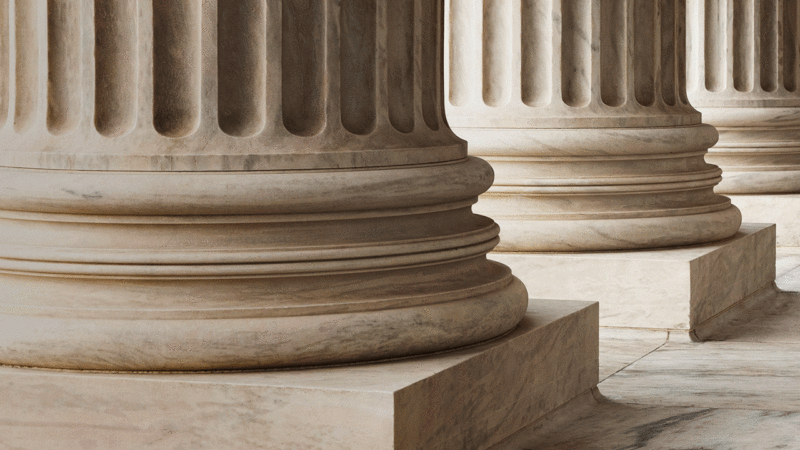A public spat has erupted between crypto-exchange Coinbase and the U.S. Securities and Exchange Commission (SEC) over the regulatory jurisdiction surrounding cryptocurrencies
A recent public exchange between U.S. Securities and Exchange Commission (SEC) Chair Gary Gensler and top executives of Coinbase, the largest U.S. cryptocurrency exchange, offers a preview of what will likely be a lengthy and complex battle over the legal and regulatory framework surrounding cryptocurrencies.
The former chairman of the U.S. Commodity Futures Trading Commission (CFTC), Christopher Giancarlo also weighed in, without directly criticizing or taking sides in the debate, saying it is a challenge to apply “90-year-old statutes” to new innovation that was never contemplated.
In testimony before the U.S. Senate Banking Committee last week, Gensler warned that cryptocurrency exchanges such as Coinbase should register with the regulator. In response to a hypothetical question from Sen. Elizabeth Warren (D-Mass.) that mentioned Coinbase, Gensler replied that Coinbase “haven’t yet registered with us, even though they have dozens of tokens that may be securities.”
His comment is the latest jab in a series of back-and-forth punches between the SEC and top executives at Coinbase over regulatory uncertainty surrounding the cryptocurrency industry. Gensler’s comment came just days after a lengthy Twitter thread by Coinbase CEO Brian Armstrong and a blog post by Coinbase Chief Legal Officer Paul Grewal, criticized the SEC’s handling of the firm’s plans to roll out a lending product that the agencies has determined to be a security.
Scope of SEC’s regulatory jurisdiction
At the heart of the legal dispute between the SEC and Coinbase is regulatory jurisdiction related to the rapidly growing and evolving crypto marketplace. The debate hinges, more specifically, on the definition of whether cryptocurrencies and related stablecoins are legally defined as securities and are therefore subject to regulation by the SEC.
Gensler has asserted, without offering specifics, that some digital assets and platforms are operating as, or offering, securities, which would bring them under the SEC’s oversight. He also has asked Congress for more specific authority in areas that may be unclear or outside the SEC’s jurisdiction. In the case of Coinbase, for example, the SEC has taken issue with the firm’s planned rollout of its “Coinbase Lend” platform.
Indeed, Grewal wrote in a public blog that the SEC has issued Coinbase a so-called “Wells notice” that the agency intends to legally charge the company if it proceeds with plans to launch the Lend product, which allows users to earn interest by lending digital assets.

Coinbase disputes that the Lend program is a security. Grewal wrote that the program is based on the USD Coin (USDC), a cryptocurrency linked to the U.S. dollar. (Such cryptocurrencies linked to an underlying asset are called “stablecoins.”)
“Customers won’t be ‘investing’ in the program, but rather lending the USDC they hold on Coinbase’s platform in connection with their existing relationship,” Grewal wrote. “And although Lend customers will earn interest from their participation in the program, we have an obligation to pay this interest regardless of Coinbase’s broader business activities. What’s more, participating customers’ principal is secure, and we’re obligated to repay their USDC on request.”
A perceived lack of communication or cooperation by the regulator is what appears to be causing Coinbase to speak out publicly. Despite the SEC’s repeated encouragement for the cryptocurrency industry to “come in and talk to us,” Grewal and Armstrong said Coinbase has been trying to engage with the SEC for nearly six months without much response. “The SEC told us they consider Lend to involve a security, but wouldn’t say why or how they’d reached that conclusion,” Grewal wrote. “A healthy regulatory relationship should never leave the industry in that kind of bind without explanation. Dialogue is at the heart of good regulation.”
Armstrong agreed, writing on Twitter, “If we end up in court, we may finally get the regulatory clarity the SEC refuses to provide. But regulation by litigation should be the last resort for the SEC, not the first.”
While the SEC declined to official comment on the exchange, Gensler continues to seek more authority for the agency to oversee a crypto world he has described as a “Wild West” riddled with fraud and investor risk. In his testimony last week, he asked for more resources to meet the growing number regulatory projects the SEC faces.
Several days later, Coinbase announced in a blog post it would not launch the program. “As we continue our work to seek regulatory clarity for the crypto industry as a whole, we’ve made the difficult decision not to launch the USDC APY [Annual Percentage Yield] program,” Coinbase stated on its blog post.
Giancarlo weighs in
In an interview on CoindeskTV on September 9, former CFTC Chairman Giancarlo shared his thoughts on a wide range of crypto-related issues — from central bank digital currencies to the complex legal and regulatory issues surrounding cryptos. Giancarlo is now a senior attorney with Willkie Farr & Gallagher and advocates for the blockchain and cryptocurrency industries.
Giancarlo said that during his time at the CFTC, regulators found that existing rules “weren’t applicable to this new innovation, to crypto itself. It is important for this new innovation that we not apply 90-year-old statutes — which is effectively what we have for the Commodities Exchange Act and the Securities Exchange Act — against a new innovation that was never contemplated in the 1930s when those statutes were written.”
Without directly commenting on the Coinbase and SEC uncertainty, Giancarlo said that when he was at the CFTC the “priority was to clarify rules and then look at enforcement actions.” To do otherwise would put firms in unwitting legal jeopardy.
As to the issue of jurisdiction, Giancarlo explained that “ultimately, it will be the courts that will have to determine jurisdiction and apply the security laws to these asset classes” adding that he’s optimistic that Congress will step in if necessary. “Congress in the last few months has really recognized crypto… and has woken up to this technology and its power and potential.”
Cryptos and blockchain are a chance to modernize finance and solve the worst elements of its existing structure, he said, noting that the country’s financial structure’s “slowness, its expensiveness and, most unfortunate, its exclusiveness” has hindered innovation.
“We need to see it as revolutionary, be willing to be flexible with our existing models, and look to this innovation to modernize shortcomings.”







